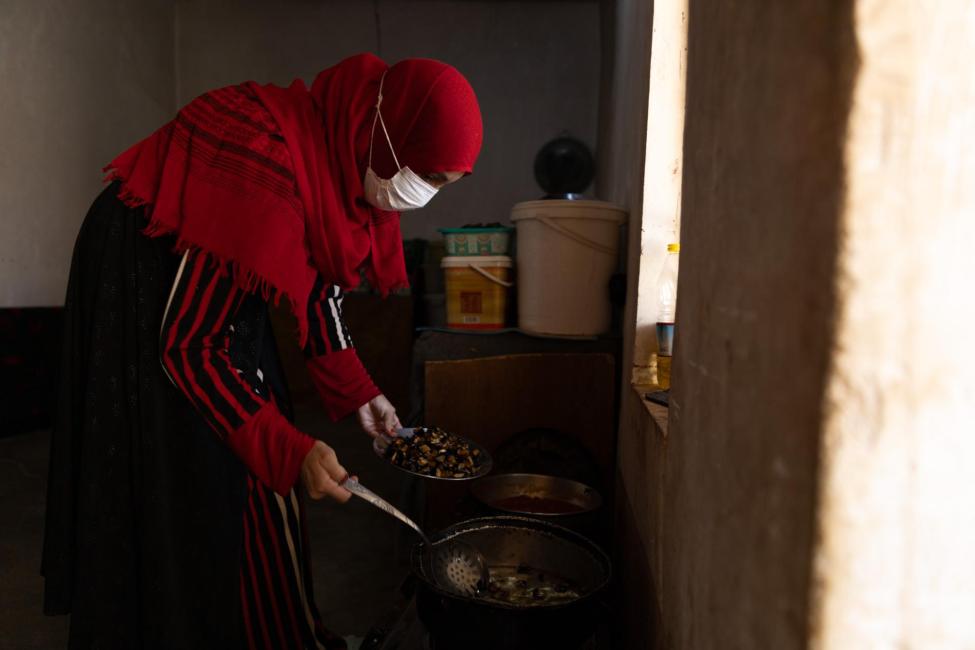-
Who We Are
WHO WE AREThe International Organization for Migration (IOM) is part of the United Nations System as the leading inter-governmental organization promoting since 1951 humane and orderly migration for the benefit of all, with 175 member states and a presence in over 100 countries. IOM has had a presence in Iraq since 2003.
About
About
IOM Global
IOM Global
-
Our Work
Our WorkAs the leading inter-governmental organization promoting since 1951 humane and orderly migration, IOM plays a key role to support the achievement of the 2030 Agenda through different areas of intervention that connect both humanitarian assistance and sustainable development. Across Iraq, IOM provides a comprehensive response to the humanitarian needs of migrants, internally displaced persons, returnees and host communities.
Cross-cutting (Global)
Cross-cutting (Global)
- Data and Resources
- Take Action
- 2030 Agenda
Mohammad*, 37, sat in the salon of his modest home while his children, nieces, and nephews scurried about. With his brothers’ families, elderly mother, and his own family under one roof, they total 15 people. The house, though in need of repairs and scant with possessions, is a blessing after eight years of displacement.
Mohammad and his family endured the throes of Daesh’s invasion. Originally from Al-Ba’aj Governorate in West Ninewa, they had to flee their home, seeking safety from bombings and violence. After moving from village to village for some time, they finally settled in a displacement camp, which grew exponentially, making life unbearable for its residents.
Luckily, their life took a positive turn when they got an opportunity to return to Al-Ba’aj. While waiting for the necessary procedures to be completed for their move, they received much-needed protection and health services from IOM while in the displacement camp. To ensure a smoother transition, IOM engaged Mohammad and his wife in livelihood workshops on sewing and welding, empowering them to earn an income and learn new skills.
“I was worried about my return – where and how would we live?” Mohammad questioned.
To help Mohammad’s family cope with stress and worries, IOM offered them awareness and information sessions and further psychosocial counseling and legal assistance.
Upon returning, Mohammed moved his family into a small mud house in an informal settlement in Al-Ba'aj, where IOM met him and offered necessary services to him and his family to help them get back on their feet.
He sighed in relief as his family finally received essential civil and identity documents that allowed them to access various services, with IOM’s assistance. They obtained marriage and paternity certificates, and a birth certificate for their daughter Najla* – all of which had been impossible to secure during Daesh’s rule.
Now Mohammad and his family are rebuilding their lives. Relying on support from IOM’s protection team, Mohammad applied for and received a government resettlement grant. It allowed him to rent a small house with his mother and cover essential expenses such as mattresses, a water tank, children’s clothes, and electricity. IOM follows up monthly to ensure the family's needs are met.
"This support changed my life completely," Mohammad shared, feeling grateful for the help with civil documentation, which he couldn’t afford. His daughters, including Najla, who missed school during displacement, have resumed their education with their new national ID cards.
“I am more comfortable now and no longer worried or afraid,” Mohammad said.
Thanks to support from the European Civil Protection and Humanitarian Aid Operations, IOM is able to help families like Mohammad safely return or relocate from prolonged displacement. Between May 2023 and April 2024, IOM provided crucial protection and legal services to over 4,200 displaced individuals residing in informal settlements in West Ninewa, Mosul, and Kirkuk.

